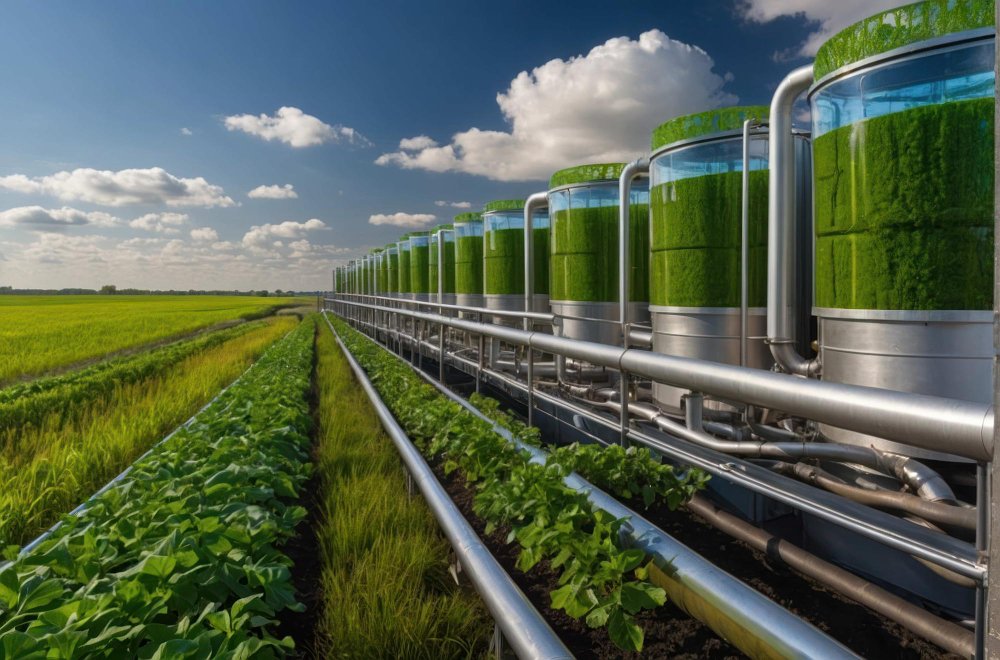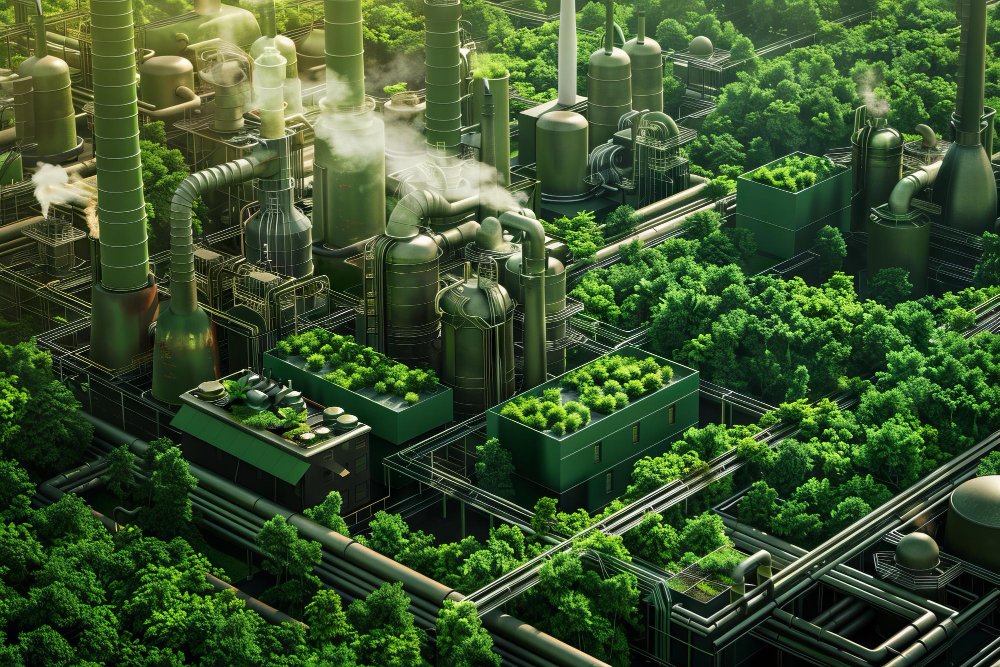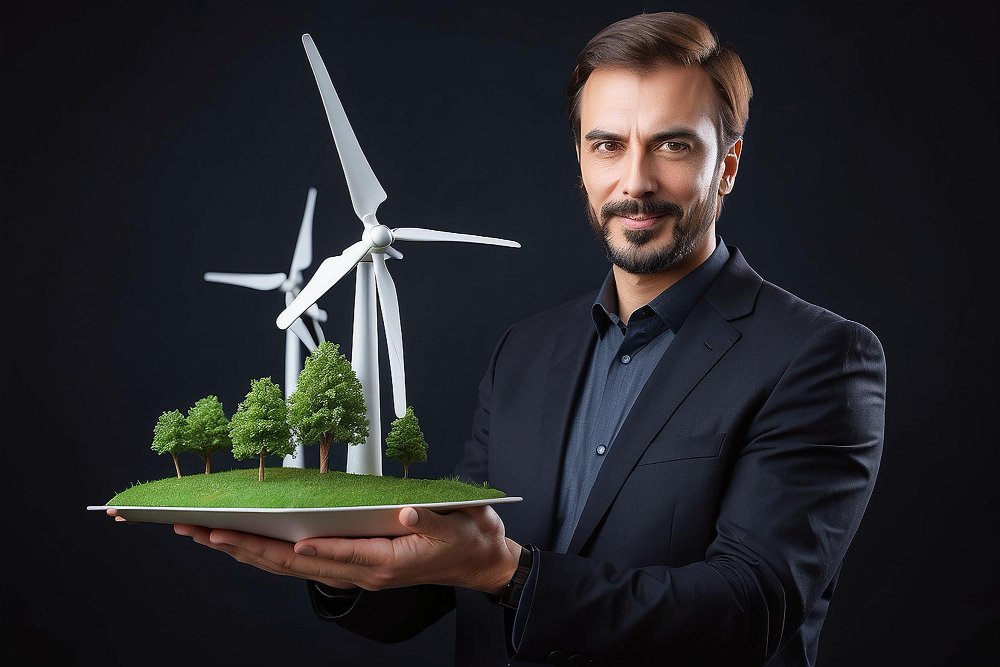Indian Oil Corporation Limited (IOCL) stands at the forefront of India’s energy sector, playing a pivotal role in meeting the country’s energy demands. With the growing urgency to combat climate change and reduce carbon footprints, Indian Oil Corporation Limited has turned its focus towards biofuels as a sustainable alternative to conventional fossil fuels. This shift not only aligns with global environmental goals but also promises a greener and more sustainable future for India.
- Understanding Biofuels
- IOCL's Commitment to Sustainability
- History of IOCL's Biofuel Initiatives
- Research and Development Efforts
- Technological Innovations
- Economic Impact of Biofuels
- Environmental Benefits
- Biofuels and Energy Security
- Challenges in Biofuel Adoption
- Government Support and Policies
- Future Prospects of Biofuels
- Successful Biofuel Projects by IOCL
- Global Perspective on Biofuels
- IOCMKT (Indian Oil Corporation Marketing): The Bridge Between Innovation and Consumers
- FAQs
- Conclusion
Understanding Biofuels
Definition and Types of Biofuels
Biofuels are renewable energy sources derived from biological materials such as plants and animal waste. The primary types of biofuels include ethanol, biodiesel, and biogas. Ethanol is typically produced from crops like corn and sugarcane, biodiesel from vegetable oils and animal fats, and biogas from organic waste through anaerobic digestion.
Benefits of Biofuels Over Fossil Fuels
Biofuels offer several advantages over traditional fossil fuels. They are biodegradable, reduce greenhouse gas emissions, and can be produced locally, which helps reduce dependency on imported oil. Additionally, biofuels contribute to rural development and job creation in the agricultural sector.
IOCL’s Commitment to Sustainability

IOCL’s Vision and Mission
IOCL is committed to driving innovation in the energy sector with a vision to provide sustainable energy solutions. The company’s mission includes exploring and implementing cleaner energy alternatives to ensure environmental stewardship while meeting the growing energy needs of the nation.
Emphasis on Sustainable Energy Solutions
In line with its commitment to sustainability, IOCL has been investing significantly in the research and development of biofuels. This emphasis on sustainable energy solutions is crucial for reducing the carbon footprint and fostering a healthier environment for future generations.
History of IOCL’s Biofuel Initiatives
Early Projects and Milestones
IOCL’s journey into the biofuel sector began with pilot projects aimed at exploring the feasibility and scalability of biofuel production. These initial projects laid the groundwork for more extensive research and development efforts, leading to several milestones in biofuel innovation.
Key Achievements in Biofuel Research
Over the years, IOCL has achieved significant breakthroughs in biofuel research. These include the development of advanced biofuel production technologies and the establishment of dedicated biofuel research centers. These achievements underscore IOCL’s leadership in the biofuel domain.
Research and Development Efforts
Overview of IOCL’s R&D Facilities
IOCL boasts state-of-the-art research and development facilities dedicated to biofuels. These facilities are equipped with cutting-edge technology and staffed by a team of experts focused on advancing biofuel production techniques and efficiency.
Partnerships with Academic and Research Institutions
To bolster its R&D efforts, IOCL has forged partnerships with leading academic and research institutions. These collaborations facilitate the exchange of knowledge and resources, driving innovation and accelerating the development of sustainable biofuel technologies.
Technological Innovations

Advanced Biofuel Production Techniques
IOCL has pioneered several advanced biofuel production techniques, including second-generation biofuels that utilize non-food biomass and waste materials. These techniques enhance the sustainability and efficiency of biofuel production, making it a more viable alternative to fossil fuels.
Breakthroughs in Biofuel Efficiency
One of the key areas of focus for IOCL’s R&D efforts is improving the efficiency of biofuel production processes. This includes optimizing feedstock conversion, reducing production costs, and enhancing the energy yield of biofuels. These breakthroughs are critical for making biofuels competitive with traditional energy sources.
Economic Impact of Biofuels
Job Creation and Economic Growth
The biofuel industry has the potential to generate significant economic benefits, including job creation and economic growth. By investing in biofuels, IOCL is helping to create new employment opportunities in rural and urban areas, stimulating local economies and promoting sustainable development.
Reducing Dependency on Imported Oil
Biofuels play a crucial role in reducing India’s dependency on imported oil. By producing biofuels domestically, IOCL helps enhance energy security, stabilize fuel prices, and reduce the trade deficit associated with oil imports.
Environmental Benefits
Reduction in Greenhouse Gas Emissions
One of the most significant environmental benefits of biofuels is the reduction in greenhouse gas emissions. Biofuels burn cleaner than fossil fuels, releasing fewer pollutants and contributing to lower carbon dioxide levels in the atmosphere.
Improvement in Air Quality
In addition to reducing greenhouse gas emissions, biofuels also improve air quality by emitting fewer harmful substances such as sulfur and particulates. This leads to better health outcomes and a cleaner environment for communities.
Biofuels and Energy Security
Enhancing National Energy Independence
By investing in biofuels, IOCL is helping to enhance India’s energy independence. Biofuels provide a renewable and locally sourced energy option, reducing reliance on foreign oil and increasing energy resilience.
Strategic Importance for India
The strategic importance of biofuels for India cannot be overstated. With a growing population and increasing energy demands, biofuels offer a sustainable solution that supports economic growth while addressing environmental concerns.
Challenges in Biofuel Adoption
Technical and Economic Hurdles
Despite the numerous benefits, biofuel adoption faces several challenges. These include technical hurdles such as improving feedstock yield and processing efficiency, as well as economic challenges related to production costs and market competitiveness.
Policy and Regulatory Challenges
Policy and regulatory challenges also play a significant role in the adoption of biofuels. Ensuring supportive policies, financial incentives, and a robust regulatory framework is essential for fostering the growth of the biofuel industry.
Government Support and Policies
National Biofuel Policy Framework
The Indian government has implemented a comprehensive biofuel policy framework to support the development and adoption of biofuels. This includes mandates for blending biofuels with conventional fuels, financial incentives for biofuel producers, and research grants for biofuel innovation.
Incentives for Biofuel Production and Use
Government incentives play a crucial role in promoting biofuel production and use. These incentives include tax breaks, subsidies, and grants that help offset the costs of biofuel production and encourage investment in the sector.
Future Prospects of Biofuels
Predictions for Biofuel Market Growth
The future prospects for biofuels are promising, with market growth predictions indicating a significant increase in demand. As technology advances and production costs decrease, biofuels are expected to become more competitive with traditional energy sources.
IOCL’s Future Plans and Goals
IOCL is committed to continuing its leadership in the biofuel sector. The company has outlined ambitious plans for expanding its biofuel production capacity, investing in new technologies, and exploring innovative applications of biofuels.
Successful Biofuel Projects by IOCL
Several successful biofuel projects underscore IOCL’s achievements in this field. These projects have demonstrated the feasibility and benefits of biofuel production, providing valuable insights for future initiatives.
Impact of These Projects on Local Communities
The impact of IOCL’s biofuel projects on local communities has been profound. These projects have created jobs, stimulated local economies, and improved environmental quality, showcasing the potential of biofuels to drive sustainable development.
IOCL’s Biofuels Successful Projects
IOCL’s commitment to biofuels is evident in several successful projects across India. One such initiative is the Panipat Refinery Biodiesel Plant in Haryana. This plant utilizes waste vegetable oil to produce biodiesel, demonstrating the potential of utilizing waste materials for sustainable fuel production.
Another noteworthy project is the Mathura Refinery Ethanol Plant in Uttar Pradesh. This plant leverages sugarcane molasses to produce ethanol, a clean-burning alternative for gasoline.
These projects have not only created employment opportunities in the local communities but have also contributed to improving air quality and reducing reliance on imported fossil fuels.
Global Perspective on Biofuels
Comparison with Global Biofuel Initiatives
Comparing IOCL’s efforts with global biofuel initiatives highlights the company’s competitive edge and innovative approach. Learning from international best practices and adapting them to the Indian context has been a key strategy for IOCL.
Lessons Learned from International Efforts
International efforts in biofuel development offer valuable lessons for IOCL. These include the importance of public-private partnerships, the need for supportive policies, and the benefits of investing in advanced research and development.
IOCMKT (Indian Oil Corporation Marketing): The Bridge Between Innovation and Consumers
IOCMKT, the marketing arm of IOCL, plays a vital role in bridging the gap between innovative biofuel research and widespread consumer adoption. They are responsible for establishing the infrastructure and distribution channels necessary to get biofuels into the hands of consumers.
This includes setting up biofuel pumps at existing retail outlets, developing educational campaigns to raise awareness about biofuels, and collaborating with fleet operators to encourage the use of biofuels in transportation.
By leveraging its extensive network of petrol pumps and strong brand presence, IOCMKT can significantly influence consumer behavior and drive the demand for biofuels across the country. Furthermore, IOCMKT’s role extends to providing feedback and insights from the market back to IOCL’s research and development teams.
This two-way communication loop is crucial for ensuring that biofuel production aligns with consumer needs and preferences, ultimately accelerating the transition towards a sustainable transportation sector.
FAQs
What are biofuels?
Biofuels are renewable energy sources derived from biological materials such as plants and animal waste. They include ethanol, biodiesel, and biogas, which can be used as alternatives to conventional fossil fuels.
How does IOCL contribute to biofuel research?
IOCL contributes to biofuel research through its state-of-the-art R&D facilities, partnerships with academic and research institutions, and significant investments in advanced biofuel production technologies.
What are the environmental benefits of biofuels?
Biofuels reduce greenhouse gas emissions, improve air quality, and are biodegradable. They offer a cleaner alternative to fossil fuels, contributing to a healthier environment.
What challenges do biofuels face in India?
Challenges include technical and economic hurdles such as improving feedstock yield and reducing production costs, as well as policy and regulatory challenges that require supportive frameworks and incentives.
What is the future of biofuels in India?
The future of biofuels in India is promising, with expected market growth driven by technological advancements, supportive government policies, and increasing demand for sustainable energy solutions.
Conclusion
IOCL’s pioneering research and development in biofuels mark a significant step towards a greener future. By embracing sustainable energy solutions, IOCL is not only addressing environmental challenges but also contributing to India’s energy security and economic growth. The company’s ongoing commitment to innovation and sustainability positions it as a leader in the biofuel sector, paving the way for a more sustainable and prosperous future.
